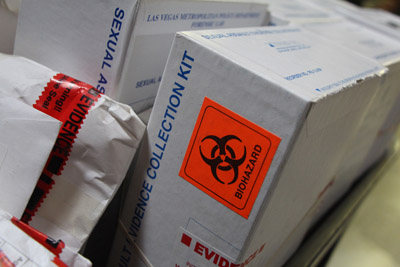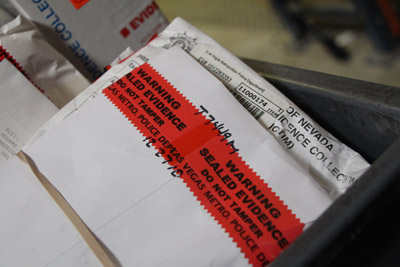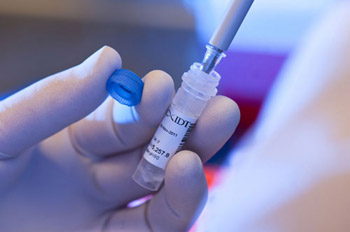The Backlog
Why is there a backlog?
Though there is no national data on the exact number of untested sexual assault kits around the country, it is estimated that hundreds of thousands of untested kits are housed in the crime laboratories and police stations throughout the country. The reasons behind the generation of this backlog are complex, but include challenges with financial and human resources, the advent of and improvements to DNA technology, and the way sexual assault cases have been investigated and tracked in the past. In response to this backlog, the State of Nevada has taken a proactive approach and has been working with local jurisdictions to address this backlog.
What is Scope of the Backlog?
At the onset of Nevada's initiative to address the backlog, the Nevada Attorney General worked with members of his Sexual Assault Kit Backlog Working Group to audit the number of untested kits statewide. Prior to the establishment of this Working Group, there were thought to be approximately 6,000 untested kits statewide. However, after the Group's assessment, it was revealed that there were nearly 8,000 untested kits throughout the state of Nevada.



What is a Sexual Assault Kit and how is it used?
A sexual assault kit (SAK) is used to store physical evidence collected during invasive and lengthy examination conducted at a hospital or rape crisis center following a sexual assault. These kits are comprised of evidence gathered from the victim by a medical professional, often a specially trained Sexual Assault Nurse Examiner (SANE). The type of evidence can vary, depending on what took place
during the assault. Sexual assault kits generally include swabs, test tubes,
microscopic slides and evidence collection envelopes for hairs and fibers. Each
kit can cost between $1,000 and $1,500 to test.
How are SAKs tested?
The video below was produced by the Las Vegas Metropolitan Police Department to explain what a sexual assault kit is and how it is tested.
What is CODIS?
The FBI's Combined
DNA Index System, known as CODIS, is the national criminal DNA database.
Congress established this database to assist law enforcement with investigative
leads on suspects. The National DNA Index System (NDIS) is one part of CODIS,
containing the DNA profiles contributed by federal, state, and local
participating forensic laboratories. DNA profiles are uploaded to NDIS from
evidence collected at crime scenes, from convicted offenders and arrestees, as
well as from missing persons and unidentified remains.
A “CODIS hit” can occur in two ways. The first is when a DNA profile
developed from evidence is uploaded to CODIS and matches with an
offender or arrestee profile in the system. The second is a case-to-case hit
in which an unidentified DNA profile matches an unidentified profile from
another case. If there is a potential match, the laboratory will go through
procedures to confirm the match. If the match is confirmed, a CODIS hit can give
investigating officers valuable information to help them focus their
investigation and identify potential suspects. The more DNA data that is entered into
this system, the more likely it will be to produce meaningful leads on crimes.

100 North Carson Street, Carson City, NV 89701 • 775-684-1100 • sakinfo@ag.nv.gov